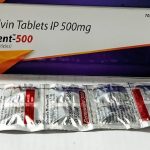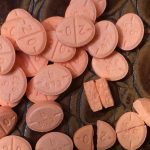List of Foods to Avoid When Taking Folic Acid

Folic acid, also known as vitamin B9, is a synthetic form of folate, a water-soluble B-vitamin crucial for DNA synthesis, cell division, and the formation of red blood cells. It is commonly used in dietary supplements and fortified foods. Folic acid plays a pivotal role in the synthesis and repair of DNA, making it essential for the growth, development, and maintenance of cells. Additionally, it contributes to the formation of red blood cells, aiding in the prevention of certain types of anemia.
During pregnancy, adequate folic acid intake is particularly crucial to prevent neural tube defects in the developing fetus. Women of childbearing age are often advised to take folic acid supplements before and during early pregnancy. While folate, the natural form of the vitamin, can be found in foods like leafy green vegetables, legumes, fruits, and fortified cereals, folic acid supplements are recommended for specific populations, including pregnant women and those at risk of deficiency.
Folic acid is commonly added to enriched grain products such as bread and pasta to help ensure sufficient intake, especially for populations prone to deficiency. However, it’s important to note that excessive intake of folic acid from supplements can have adverse effects. The conversion of folic acid into its active form, tetrahydrofolate, occurs in the liver and other tissues. The absorption of folic acid takes place in the small intestine.
However, certain dietary choices may interfere with the absorption and utilization of folic acid, diminishing its effectiveness. This article explores foods to avoid when taking folic acid to ensure optimal absorption and utilization of this essential nutrient.
Signs and Symptoms of Folic Acid Deficiency
Folic acid deficiency can manifest through various signs and symptoms, affecting different aspects of health. Here are some common signs of folic acid deficiency:
1. Megaloblastic Anemia: Folic acid is essential for the production of red blood cells. Deficiency can lead to megaloblastic anemia, characterized by larger-than-normal red blood cells that are unable to function effectively. Symptoms include fatigue, weakness, and pale skin.
2. Gastrointestinal Issues: Folic acid deficiency can cause digestive problems, such as diarrhea, loss of appetite, and weight loss. These symptoms may result from the impact of folic acid on the rapidly dividing cells lining the gastrointestinal tract.
3. Mood Changes and Irritability: Folic acid plays a role in the synthesis of neurotransmitters like serotonin. Deficiency may contribute to mood changes, including depression and irritability. Adequate levels of folic acid are crucial for maintaining mental well-being.
4. Tongue and Mouth Sores: Deficiency may lead to the development of ulcers or sores in the mouth and on the tongue. These lesions can be painful and contribute to discomfort during eating and swallowing.
5. Neurological Symptoms: In severe cases, folic acid deficiency can affect the nervous system, leading to symptoms such as numbness and tingling in the extremities. Long-term deficiency may contribute to more serious neurological issues.
6. Developmental Issues in Pregnancy: Folic acid is particularly crucial during pregnancy for the proper development of the fetal neural tube. Deficiency in pregnant women can increase the risk of neural tube defects, such as spina bifida, in the developing fetus.
7. Fatigue and Weakness: Folic acid deficiency can contribute to overall fatigue and weakness, as the body struggles to produce healthy red blood cells and maintain normal cellular function.
It’s important to note that the signs of folic acid deficiency can be subtle, and symptoms may develop gradually.
Foods to Avoid When Taking Folic Acid
When incorporating folic acid into your dietary regimen, it’s essential to be mindful of certain foods and substances that may hinder its absorption and utilization. Here are details on the foods to avoid when taking folic acid:
1. Excessive Alcohol Consumption: Excessive alcohol consumption poses a risk to the optimal absorption and utilization of folic acid. Alcohol interferes with the body’s ability to absorb nutrients, disrupting the absorption process in the small intestine. This interference may lead to reduced levels of folic acid in the bloodstream. Pregnant women, in particular, are advised to limit their alcohol intake, as it can compromise the effectiveness of folic acid supplements crucial for fetal development.
2. Highly Processed Foods: Highly processed foods, characterized by their low nutritional value, are often deficient in essential nutrients, including folic acid. Additionally, these foods may contain substances that hinder the absorption of nutrients in the digestive system. A diet high in processed foods, such as sugary snacks, sodas, and fast food, can contribute to nutritional deficiencies, counteracting the benefits of folic acid supplementation.
3. Excessive Caffeine Intake: While moderate caffeine consumption is generally considered safe, excessive intake can adversely affect the absorption of folic acid. Caffeine has diuretic properties that increase the excretion of water-soluble vitamins, potentially leading to decreased folic acid levels. Individuals taking folic acid supplements should be cautious of their caffeine intake, considering moderation to ensure optimal absorption and utilization of this essential nutrient.
4. Raw Egg Whites: Raw egg whites contain a protein known as avidin, which binds to biotin, another B-vitamin. Although folic acid is not directly impacted by avidin, it is advisable to limit the consumption of raw egg whites. Avidin’s interaction with biotin may indirectly affect the utilization of folic acid, emphasizing the importance of maintaining a balanced diet and considering alternative protein sources.
5. Certain Medications: Some medications can interfere with folic acid absorption or increase the body’s demand for this essential nutrient. Individuals taking anticonvulsant medications, methotrexate (utilized in chemotherapy), or sulfasalazine (used to treat inflammatory conditions) should consult their healthcare provider. The healthcare provider can determine the appropriate folic acid supplementation to counteract potential deficiencies caused by these medications and ensure overall well-being.
Conclusion
Understanding the foods and substances that may impede the effectiveness of folic acid is crucial for individuals seeking to optimize their nutritional intake. By avoiding excessive alcohol consumption, highly processed foods, excessive caffeine, and raw egg whites, and by consulting healthcare providers regarding medication interactions, individuals can better ensure the successful absorption and utilization of folic acid, promoting overall health and well-being.
A balanced and nutrient-rich diet, combined with a cautious approach to certain foods and substances, can also help ensure the effectiveness of folic acid supplementation and support overall well-being.





